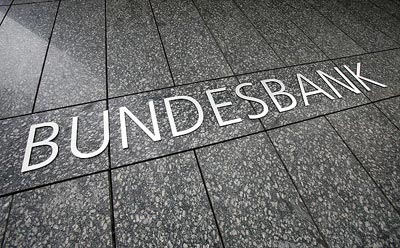Bundesbank released German economy projections

The June 2018 edition of the Bundesbank’s Monthly Report outlines the prospects for the German economy on the basis of macroeconomic projections for 2018 and 2019, with a look ahead at the year 2020.
According to the forecast, which was published on 15 June, the German economy will grow by 2.0% in 2018 and 1.9% next year (both figures calendar adjusted). It is forecast to grow by 1.6% in 2020. “All in all, the projection paints a picture of an ongoing economic boom, in which increasing supply-side bottlenecks are reflected in strong wage growth and in higher domestic inflation,” noted Bundesbank President Jens Weidmann in reference to the Bank’s latest economic projection.
Discussion on raising the target inflation rate
Another topic broached in the latest edition of the Monthly Report is the issue of whether central banks should raise the inflation target. At present, the majority of central banks in advanced economies aim for an inflation rate of around 2%. Some economists argue that a higher target inflation rate would widen the safety margin to the lower bound on interest rates, thus broadening the scope for monetary policy countermeasures in times of crisis.
The Bundesbank’s experts take a critical view of this proposal, as its proponents largely fail to take into account the wider implications of a higher inflation target. In particular, central banks that aim for a higher target inflation rate would, for example, have to be more aggressive in their interest rate policy responses, which the experts believe would mean relinquishing some of that room for manoeuvre.
Bundesbank projection: economic boom continues
The German economic boom continues. The already high level of capacity utilisation is still increasing, although growth rates are not quite as high as a year earlier, according to the Bundesbank’s latest projection. The Bundesbank’s experts anticipate a rise in calendar-adjusted gross domestic product (GDP) of 2.0% in the current year and 1.9% in the coming year. In 2020, it is likely to see an increase of 1.6%. The German economy grew by 2.5% in the previous year. “Overall, the projection paints a picture of an ongoing economic boom, in which increasing supply-side bottlenecks are reflected in strong wage growth and in higher domestic inflation,” noted Bundesbank President Jens Weidmann in reference to the Bank’s latest economic projection.
Risks outweigh opportunities
Compared to their projection last December, Bundesbank economists have revised their expectations. They now anticipate economic growth for 2018 to be 0.5 percentage points lower; by contrast, they have adjusted their expectations for 2019 and 2020 slightly upwards. “Uncertainties regarding the prospects for the German economy are considerably greater than they were,” emphasised Bundesbank President Weidmann. According to the Bank’s economists, downside risks relating to the external environment outweigh the effects resulting from the probably more expansionary fiscal policy in Germany.
According to the economists’ estimates, exports and commercial investment are likely to see weaker growth over the projection horizon than in the previous year. In addition, the growing lack of skilled workers is increasingly dampening employment growth. Despite significantly stronger wage growth, this tends to brake the rise in households’ disposable incomes, the Bundesbank projection explains. This lowers the underlying trend of private consumption. By contrast, the expansionary fiscal measures of the new Federal Government are expected to provided stimulus to support aggregate demand overall in 2019 in particular.
Prices of goods and services rising
The Bank’s experts also predict price developments in Germany. According to their estimates, the rate of inflation as measured by the Harmonised Index of Consumer Prices (HICP) is likely to rise marginally to 1.8% in the current year, and then to remain roughly unchanged in the following years. “The fact that energy prices are forecast to lose a lot of their momentum and finally even to sink will mask stronger inflation for other goods and services,” write the economists. On this basis, they forecast that the core inflation rate – ie the rate of price increase excluding the influence of energy and food – will stand at 1.4% in the current year, 1.7% in 2019, and will reach 2.0% in 2020. Compared to their projections from December, the experts have revised their expectations for 2018 upwards, primarily due to increased energy prices. By contrast, they have slightly lowered their expectations for 2020.
Source: Bundesbank – June Monthly Report published




























